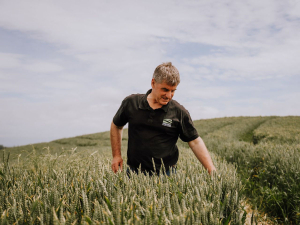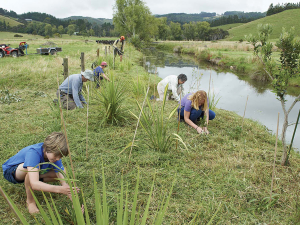Federated Farmers says changes announced to the Resource Management Act today mark the end of the war on farming.
"These impractical rules have been a complete nightmare since the day they were introduced and farmers will be pleased to see the back of them," Federated Farmers freshwater spokesperson Colin Hurst says.
"They were rushed through before the 2020 election by overzealous regulators with a complete disregard for those who would actually need to implement them behind the farm gate.
"Farmers are always looking to improve environmental outcomes on their properties and to care for the land, but regulation needs to be practical, pragmatic and affordable.
"These rules failed on all three counts. They were completely disconnected from the reality of farming, devoid of all commonsense, and heaped on a tonne of unnecessary costs for farmers."
The Government hopes to table its first RMA Amendment Bill next month which focuses on targeted changes that can take effect quickly and give certainty to councils and consent applicants, while new legislation to replace the RMA is developed.
Five changes will be included in the Bill, these will:
- Make it clear that, while the NPS-FM is being reviewed and replaced, resource consent applicants no longer need to demonstrate their proposed activities follow the Te Mana o te Wai hierarchy of obligations, as set out in the National Policy Statement for Freshwater Management (NPS-FM).
- Amend stock exclusion regulations in relation to sloped land.
- Repeal intensive winter grazing regulations.
- Align the consenting pathway for coal mining with the pathway for other mining activities in the National Policy Statement for Indigenous Biodiversity (NPS-IB), NPS-FM, and the National Environmental Standards for Freshwater (NES-F).
- Suspend the NPS-IB requirement for councils to identify new Significant Natural Areas (SNAs) for three years.
Hurst says farming rules were so poorly thought through they had to be amended eight times in just three years, and even then they remained totally unworkable and confusing for farmers.
"The constant chopping and changing has been incredibly confusing and has completely undermined farmers’ confidence to invest in their businesses," Hurst says.
"The previous Government should have listened when farmers told them a one-size-fits-all approach was never going to work. It’s like trying to fit a square peg into a round hole."
Winter grazing rules would have required over 10,000 farmers around the country to get a resource consent just to feed a winter crop to their stock.
"Even if farmers had complied, the councils wouldn’t have had the capacity to process that number of consents."
Hurst is also deeply critical of flawed stock exclusion rules that currently require extensive sheep and beef properties to fence their waterways by July 2025.
"Fencing streams on extensive properties with low stocking rates has the potential to cost farmers hundreds of thousands of dollars, for very little environmental gain," Hurst says.
"It makes no sense to have a blanket rule requiring fences on these vast properties with difficult terrain and a very low stocking rate.
"The previous Government had two attempts at mapping out where sheep and beef farmers needed to fence streams, and they still couldn’t get it right.
"Fences don’t go up overnight, so the reality is that those farmers couldn’t comply with the current rules by July next year, even if they wanted to.
"Farmers are New Zealand’s leading conservationists. I can’t think of any group of people who are doing more to protect and enhance our countries biodiversity.
"We need to be empowering farmers and supporting them to make further improvements on their properties instead of tying them up in needless red tape."
Federated Farmers strongly believe that winter grazing, stock exclusion and on-farm biodiversity can be better managed through the upcoming rollout of farm plans.
"Farm plans allow farmers and rural communities to tailor their environmental improvement actions to match their specific local needs," Hurst says.
"This will always lead to much better outcomes, and more community buy-in, than impractical and expensive one-size-fits-all rules driven out of Wellington."
Agriculture Minister Todd McClay says improving primary sector profitability is key to boosting our largest exporting sector. Regulations need to be fit for purpose and not place unnecessary costs on farmers and growers.
“Removing the need for resource consent applicants to demonstrate that their activities follow the hierarchy of obligations will better reflect the interests of all water users,” McClay says.
“Cabinet has agreed changes to stock exclusion and winter grazing regulations representing a move to a more risk-based, catchment-focussed approach.
“We’re proposing to remove the problematic and contentious low slope map and for regional councils and farmers to determine where stock need to be excluded, based on risk. The focus is on farm-level and regionally suitable solutions. This will reduce costs for farmers.”











